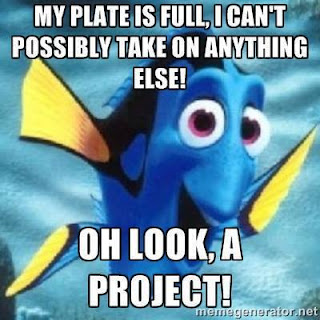What is Secular?
I want to thank Blair Lee from SEA (secular, eclectic, academic) Homeschoolers for the following description that should help you understand better what definition I will be using for my blog. Blair was nice enough to let me "borrow" her definition (also used for all the SEA groups, which I am lucky enough to be a part of on facebook!) Thank you Blair for all you do!!
Her definition in part:
I want to clearly define what secular means in academics both generally and as it applies to science and history.
Science
Science curricula and programs should present the accepted facts, principles, models, and theories explaining how the natural and physical world works as recommended by a majority of practicing experts in that area of science. Science curricula and programs should not exclude or misrepresent scientific facts, principles, models, or theories that are considered core ideas in the field.
Science curricula and programs should present the accepted facts, principles, models, and theories explaining how the natural and physical world works as recommended by a majority of practicing experts in that area of science. Science curricula and programs should not exclude or misrepresent scientific facts, principles, models, or theories that are considered core ideas in the field.
Science curricula and programs should not:
• minimize, misrepresent, or omit accepted scientific facts, principles, models, or theories
• incorporate religious philosophy into the curriculum or program
• politicize science issues in a way that misrepresents the issues
• minimize, misrepresent, or omit accepted scientific facts, principles, models, or theories
• incorporate religious philosophy into the curriculum or program
• politicize science issues in a way that misrepresents the issues
History
Secular history curriculum is one that does not posit, present, or endorse religious beliefs, texts, philosophies, and teachings as factual. Secular curricula can and often will discuss the influence of religions and religious belief on historical events.
Secular history curriculum is one that does not posit, present, or endorse religious beliefs, texts, philosophies, and teachings as factual. Secular curricula can and often will discuss the influence of religions and religious belief on historical events.
The two common ways that non-secular curricula present religious beliefs and teachings as factual are:
• presenting religious texts as historically factual accounts
• presenting historical events as divinely influenced
• presenting religious texts as historically factual accounts
• presenting historical events as divinely influenced
Neither of which can be a part of a secular history curriculum.
Some otherwise secular history curricula use non-secular third-party materials because the publisher believes those resources to be the best available.
Some otherwise secular history curricula use non-secular third-party materials because the publisher believes those resources to be the best available.
Other Disciplines
History and science are the two most problematic academic disciplines when it comes to finding curricula and programs for secular homeschooling parents. Other academic disciplines are considered academically secular if they do not incorporate or include religious sentiments, homilies, or readings except where academically relevant. For example a literature course that includes Milton’s Paradise Lost, John Steinbeck’s The Pearl, or Dante’s Inferno could be part of a secular course of study if the purpose for its inclusion is strictly academic.
History and science are the two most problematic academic disciplines when it comes to finding curricula and programs for secular homeschooling parents. Other academic disciplines are considered academically secular if they do not incorporate or include religious sentiments, homilies, or readings except where academically relevant. For example a literature course that includes Milton’s Paradise Lost, John Steinbeck’s The Pearl, or Dante’s Inferno could be part of a secular course of study if the purpose for its inclusion is strictly academic.
There are benefits from using secular materials. Secular curricula and programs are more intellectually honest about the foundational fundamentals and core knowledge of academic disciplines. They cover the basic materials as would be recommended by a majority of practicing experts in that field.


Comments
Post a Comment